- The Open University
- Accessibility hub
- Guest user / Sign out
- Study with The Open University

My OpenLearn Profile
Personalise your OpenLearn profile, save your favourite content and get recognition for your learning

A collection: psychology research students' articles
Have you ever wondered what psychologists do? Discover some of the fascinating research our PhD students in the School of Psychology have been doing in these introductory articles.
This content is associated with The Open University's Psychology courses and qualifications .
Psychology research students’ topics include criminology, teaching, autism, data privacy, politics and extremism.

Honour thy vulnerable witnesses
Dionysia Lali looks at developing evidence-based practice to support witnesses on the autistic spectrum when they give evidence to the police.

Non-speaking autism, embodiment, neurodivergence and access to communication therapies and devices
Ruth Collier-Large discusses her research project, which aims to give a platform to non-speaking autistic people, who may communicate independently online.

How does online intergroup contact compare with face-to-face?
The ability of intergroup contact to reduce prejudice is a well-researched area of psychology. However, as more and more contact takes place online, PhD student Julian Bond is working to understand whether this changes the effectiveness of intergroup contact and the potential implications for a more harmonious society.

How does trauma influence identity and engagement with extremism?
Nowadays, extremism and terrorism are frequently in the news with reports of attacks by individuals and groups in various countries. This article looks at the link between trauma and identity and extremism.

Migrant parenting
How do mothers and fathers from the former Czechoslovakia make sense of their roles as parents in the UK?

Privacy in the Digital Age: Is it ‘An Englishman’s home is his castle’ or ‘I’ve got nothing to hide’?
Emma Brice's PhD asks the question: have technological developments changed how we view and understand privacy in contemporary society? This was inspired by how we, as a society, talk about privacy and privacy loss.

The lifelong political engagement of the Silent Generation
Sue Nieland explains why you're never too old to be political.

The trouble with teaching physics
Do you find physics easy or hard to understand? Katherine Langford looks at reasons behind this.
Study a free psychology course

Starting with psychology
The most 'important and greatest puzzle' we face as humans is ourselves (Boring, 1950, p. 56). Humans are a puzzle, one that is complex, subtle and multi-layered, and it gets even more complicated as we evolve over time and change within different contexts. When answering the question 'what makes us who we are?' psychologists put forward a ...

Forensic psychology
In this free course, Forensic psychology, you will discover how psychology can help obtain evidence from eyewitnesses in police investigations and prevent miscarriages of justice.

Investigating psychology
One of the keys to understanding psychology is to know about its history and core questions. This free course, Investigating psychology, allows you to explore psychology using an interactive resource. You can follow links to people, contexts, perspectives and methods to discover information, images and links from across psychology. The resource ...

Introduction to child psychology
Childhood is a time of rapid growth and development, and studying these changes is endlessly stimulating. In this free course, Introduction to child psychology, you will be introduced to the discipline of child psychology and some of the key questions that guide the understanding of childhood. These questions include 'What influences children's...

Applying to study for a PhD in psychology
This free OpenLearn course is for psychology students and graduates who are interested in PhD study at some future point. Even if you have met PhD students and heard about their projects, it is likely that you have only a vague idea of what PhD study entails. This course is intended to give you more information.

Exploring sport coaching and psychology
This free course, Exploring sport coaching and psychology, investigates how scientific and management ideas contribute to success while also taking you on a journey through unique sporting case studies and insights that will change how you view and study sport. You will consider how the mind, the body, the environment and training techniques all...

Living psychology: animal minds
Does your pet cat or dog experience emotions the same way you do? Can non-human animals solve complex problems? To what extent do other species have minds that are like human minds? This free course, Living psychology: animal minds, explores these, and other, issues in the psychology of animal minds. Studying animal minds is of great importance ...

The psychology of cybercrime
In this free course, The psychology of cybercrime, you will explore different questions about cybercrime from a psychological angle in an attempt to better understand this relatively recent field of psychology. You will consider the realms and limits of cybercrime, distinguishing between the different types of cybercrime (e.g. trolling, ...

Social psychology and politics
Why are social psychologists interested in politics, and how can they help us understand things like social movements, protest and activism? This free course, Social psychology and politics, moves away from a state-centric study of politics and, using insights from social psychology, explores the role of identity, personality and culture for ...
Become an OU student
Ratings & comments, share this free course, copyright information, publication details.
- Originally published: Friday, 15 July 2022
- Body text - Creative Commons BY-NC-SA 4.0 : The Open University
- Image 'Social psychology and politics' - Copyright: © lacimolnar / iStockphoto.com; © ericcrama / iStockphoto.com; © Michael Debets / Alamy Stock Photo
- Image 'How does trauma influence identity and engagement with extremism?' - Photo by Levi Meir Clancy on Unsplash under Creative Commons BY-SA 4.0 license
- Image 'How does online intergroup contact compare with face-to-face?' - Photo by Anastasia Shuraeva: https://www.pexels.com/photo/interracial-co-workers-having-fun-conversation-in-office-pantry-7279335/ under Creative Commons BY-SA 4.0 license
- Image 'Privacy in the Digital Age: Is it ‘An Englishman’s home is his castle’ or ‘I’ve got nothing to hide’?' - Photo by Lianhao Qu on Unsplash under Creative Commons BY-SA 4.0 license
- Image 'The lifelong political engagement of the Silent Generation' - Photo by Jannes Van den wouwer on Unsplash under Creative Commons BY-SA 4.0 license
- Image 'Honour thy vulnerable witnesses' - Photo by geralt on pixabay.co m under Creative Commons BY-SA 4.0 license
- Image 'Migrant parenting' - Photo by freestocks.org on pexels.com under Creative Commons BY-SA 4.0 license
- Image 'Introduction to child psychology' - Copyright free
- Image 'Non-speaking autism, embodiment, neurodivergence and access to communication therapies and devices' - Photo by Peter Burdon on Unsplash under Creative Commons BY-SA 4.0 license
- Image 'The trouble with teaching physics' - Photo by Artturi Jalli on Unsplash under Creative Commons BY-SA 4.0 license
- Image 'Living psychology: animal minds' - Copyright: © Michael Neugebauer/Dr Goodall and the Jane Goodall Institute do not endorse handling or interfering with wild chimpanzees. The orphaned chimpanzee in this photo lives at a JGI sanctuary
- Image 'Starting with psychology' - Copyright: Used with permission
- Image 'Applying to study for a PhD in psychology' - Copyright free
- Image 'The psychology of cybercrime' - Copyright free
- Image 'Exploring sport coaching and psychology' - Copyright: © SolStock/iStock
- Image 'Investigating psychology' - Copyright free
- Image 'Forensic psychology' - Copyright: RichLegg
Rate and Review
Rate this article, review this article.
Log into OpenLearn to leave reviews and join in the conversation.
Article reviews
For further information, take a look at our frequently asked questions which may give you the support you need.
Share this article
Oxford Summer School – Book by 31st Dec to Secure £500 Off
Psychology Articles
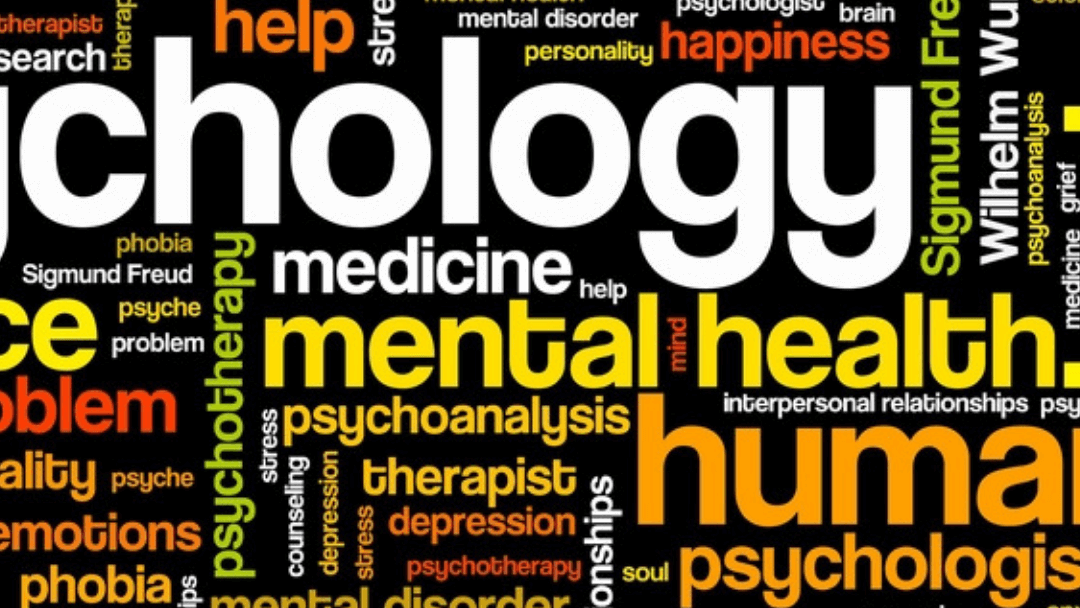
Why Study Psychology?
Psychology is both an interesting and challenging discipline which is very rewarding to study. There are so many reasons why you should study it – even if you don’t want to work in a psychology-related area. If you find it interesting, then choosing to do a degree in...
Psychology is both an interesting and challenging discipline which is very rewarding to study. There are so many reasons why you should study it – even if you don’t want to work in a psychology-related area. If you find it interesting, then...

Guide to Different Medical Specialties
Medical students are often confident in stating their desire to 'become a doctor'. But what about the specific types of medical practice that are open to you? By no means do you need to have your whole medical career path mapped out at the beginning of medical school....

What Is Spatial Mapping?
Our brains are really amazing organs, and they do a lot of work without us even realising. Things like directions and spatial mapping are a brilliant example of this. This is just one of the many fascinating topics you can explore in-depth at Oxford Scholastica...

How to Develop a Positive Attitude in High School
High school can be a period of immense pressure. Students are expected to stay on track with their academics, take part in social activities, and make important and impactful decisions about their future. The combination of these pressures can take its toll on...
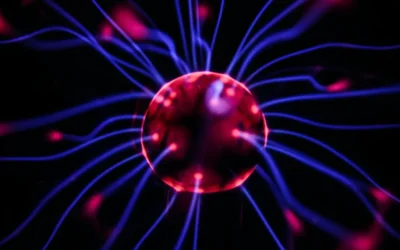
15 Best UK Universities to Study Psychology
Studying Psychology at university is the perfect opportunity to explore the workings of the human mind and develop an in-depth understanding of human behaviour. It’s also an important stepping stone to working in certain psychological professions, as a degree in...

What Are the Benefits of a Psychology Summer School?
Psychology summer schools are summer programmes designed to give students the opportunity to explore the subject outside of the school curriculum. Often designed to mimic the experience of studying a Psychology degree, they can be a great way to develop your skills...

10 Psychology Books Everyone Should Read
Psychology is a wide-reaching field, covering everything from social attachments to disorders of the brain and nervous system (neurology). We've put together a list of ten Psychology books that we think every student should read. Whether you're preparing to study at...

Reasons You Should Be a Scientific Researcher
There is a teapot flying around the moon, too small to be seen by any modern telescope. Much closer to us, there are birds flying through the sky. One of these claims is, of course, nonsense. Last time we checked, there was no crockery orbiting anything in space. Even...

5 Benefits of Online Learning for Students
Since the start of the pandemic, schools, universities, and workplaces have increasingly moved online, learning to adapt to new ways of working and teaching. The loss of face-to-face interaction has brought some challenges and hurdles, but there is also much to be...
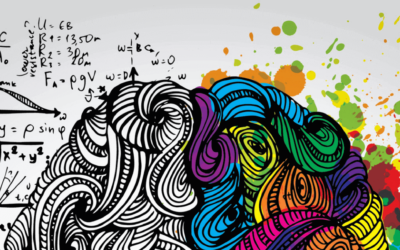
Split Brain Experiments: Are You One Person or Two?
Would you believe me if I told you that the two halves of your brain know different things about the world: that they have different beliefs, abilities and even personalities? Many top psychology books discuss the widely held misconception that logical people are...
Reserve Your Spot Today
Ready for a life-changing educational experience? Apply in minutes and reserve a spot for Oxford's #1 rated summer school or our online programmes.
- ABOUT US About the Journal About The Publisher Editorial Board FAQs Journal Metrics --> Open Access Policy Open Url Guidelines Quick Track Option -->
- ETHICAL GUIDELINES Allegations From whistleblowers Conflict of Interest Fabricating and Stating False Information Plagiarism Prevention Post Publication Discussions and Corrections Publishing Ethics Research Misconduct
- FOR EDITORS & REVIEWERS Editorial Management Editorial Policies Ensuring Content Integrity Ethical Guidelines for New Editors Guest Editor Guidelines Peer Review Workflow Publication Process Guidelines For Peer Reviewers
- FOR GUEST EDITORS Guidelines for Guest Editors
- FOR AUTHORS Archiving Policies ARTICLE PROCESSING CHARGES Author Benefits Authorship Bentham Manuscript Processing System Institutional Membership Instructions for Authors Manuscript Transfer Facility Special Fee Waivers and Discounts
- Submit Manuscript
- MARKETING OPPORTUNITIES Advertise With Us Kudos Advertising Policy
- BECOME A PART Submit Abstract Online Submit Issue Proposal Become an Editorial Member Become a Reviewer Become a Section Editor Become an Executive Guest Editor Become a Member
Submission for General Articles
Submit to Thematic Issues
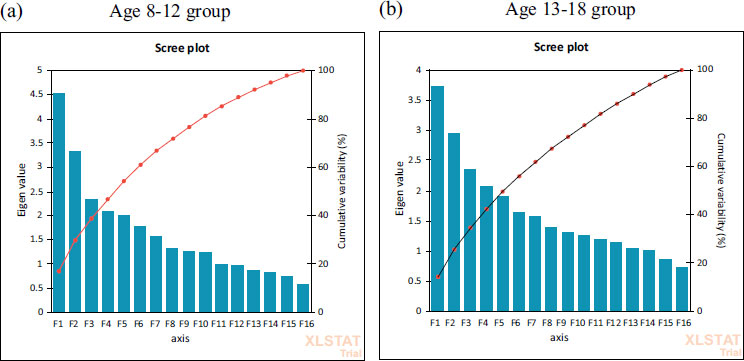
Constructing a Novel Instrument to Measure Social-Emotional Self-Regulation in Students Aged 8-18
- Simon P. Walker, Jo Walker
The Relationship between Attachment Styles, Maladaptive Caregiving Strategies, and Public Prosocial Tendencies toward the LGBTQIA+ Community: A Cross-sectional Study among Slovak Adults
- Daniel Lenghart
- Michal Čerešník
Personality and Parental Guidance for Preferred Movies among Japanese Undergraduates: Focusing on Dark Triad and Big-five Personality Traits
- Linzhang Huang
- Yusaku Nakagaki
- Atsushi Oshio
Work Stress and Professional Burnout in Greek Police Officers
- Christos Kostas
- Dimitris D. Vlastos
- Paraskevi Theofilou
Psychometric Properties and Factor Structure of the Hamilton Anxiety Rating Scale among Korean University Students during COVID-19
- Hyelin Jeong
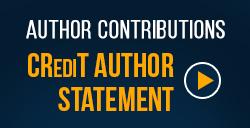
ISSN (Online): 1874-3501
Volume: 17, 2024, scopus citescore, published contents, search articles, track your manuscript.
- JOIN OUR TEAM
- Join as an Editorial Board Member
- Join as an Executive Guest Editor
- Join as a Reviewer
- Join as a Section Editor (Special Issues)
- MARKETING OPPORTUNITIES
- Advertising Policy
- Promotional Services
AIMS AND SCOPE
The Open Psychology Journal is an open access journal, that publishes research articles, reviews/mini-reviews, case reports, perspectives, letters and guest edited single topic issues in all areas of psychology. The journal’s coverage is comprehensive and includes applied psychology; biological psychology; clinical psychology; developmental psychology; experimental psychology (and cognitive neuroscience); educational psychology; mathematical psychology; social psychology; and psychoanalysis.
The Open Psychology Journal , a peer-reviewed journal, is an important and reliable source of current information on developments in the field. Emphasis is placed on publishing quality papers, making them freely available to researchers worldwide.

ABOUT THE EDITOR
Thomas müller.

Affiliation:
Department of Neurology Alexianer St. Joseph-Krankenhaus Berlin-Weißensee Berlin Germany
Editor's Choice
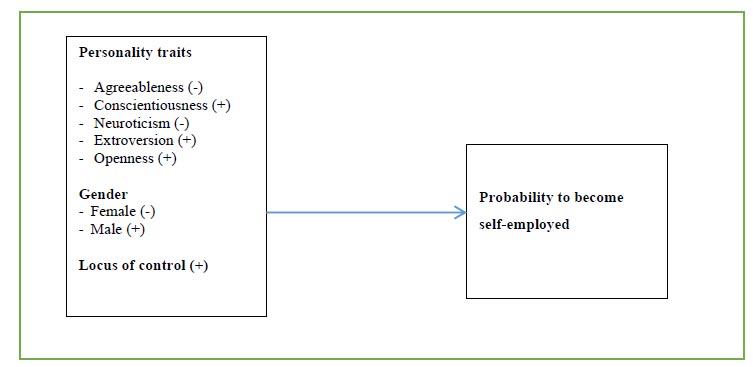
Entrepreneurial Career Probabilities of Adolescents
Volume: 14 (2021): 104
Kaethe Schneider and Vbronia Saeed
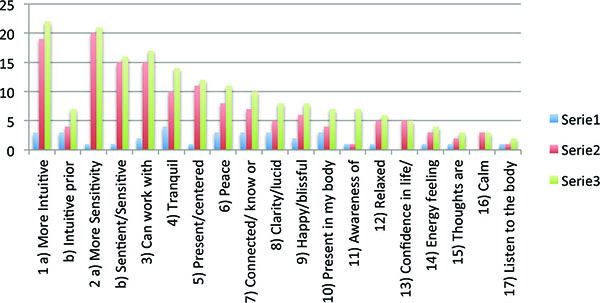
Experiencing Peace Through Heart-Based Meditation on The Self
Volume: 10 (2017): 27
Tina Lindhard
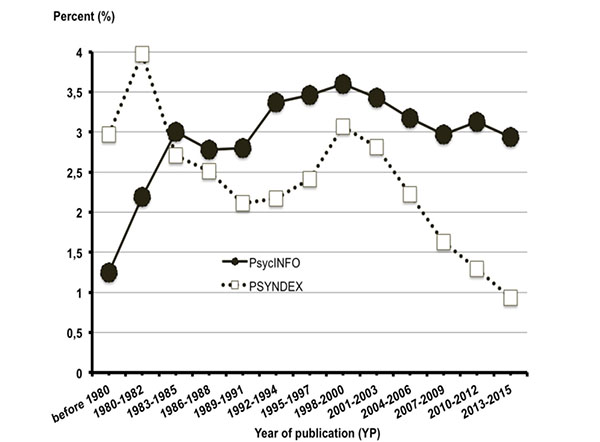
On the Scientific Discourse Practice in Psychology: Professional Comments and Replies in Different Subdisciplines of Psychology up to 2015
Volume: 10 (2017): 19
Günter Krampen
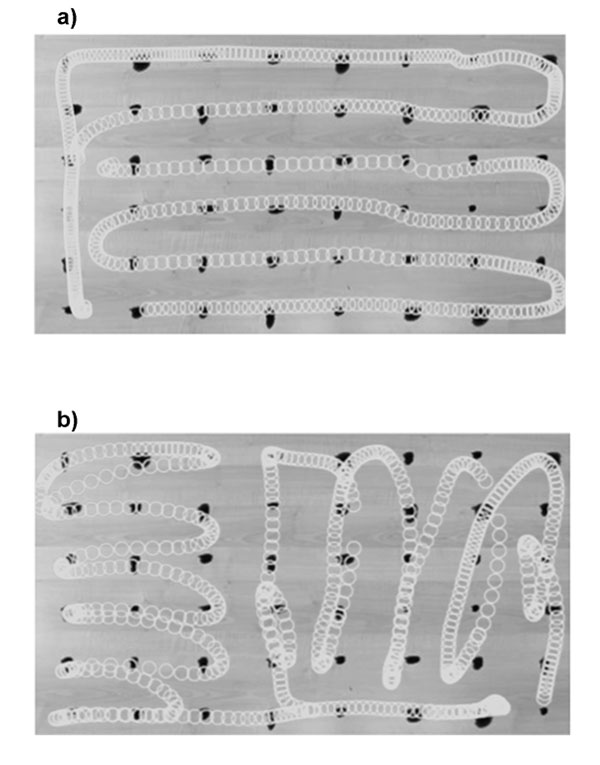
Towards a Dynamic Assessment of Unilateral Spatial Neglect
Volume: 10 (2017): 71
Andrea Peru, Alice Bollini, Sergio Costanzo, Monica Dainelli, Lea Landucci, Daniele Pezzatini, Alberto Del Bimbo and Maria Pia Viggiano
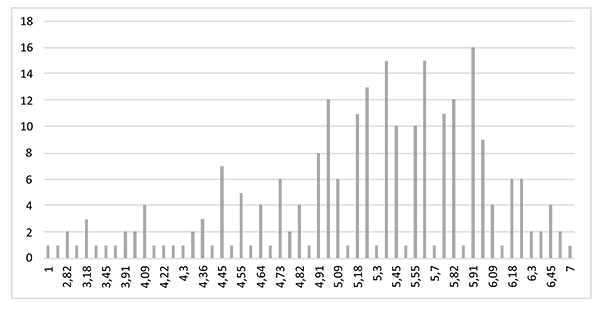
Support for the Forensic DNA Database and Public Safety Concerns: An Exploratory Study
Volume: 10 (2017): 104
Monica Pivetti, Antonella Caggiano, Filippo Cieri, Silvia Di Battista and Chiara Berti
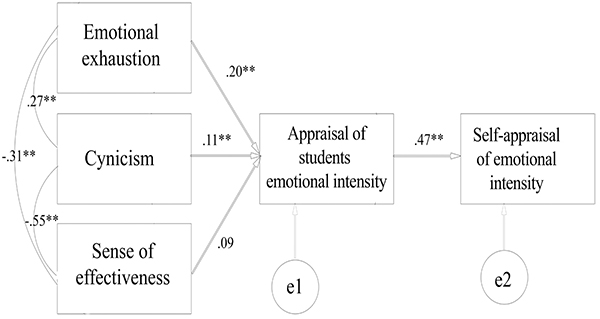
At-Risk Teachers: The Association Between Burnout Levels and Emotional Appraisal Processes
Volume: 10 (2017): 127
Caterina Fiorilli, Alessandro Pepe, Ilaria Buonomo and Ottavia Albanese
Press Release
Bentham is proud to announce collaboration with elsevier, three bentham open journals receive impact factors, the nursing journal directory indexes bentham journal, the open public health journal, advertisement.
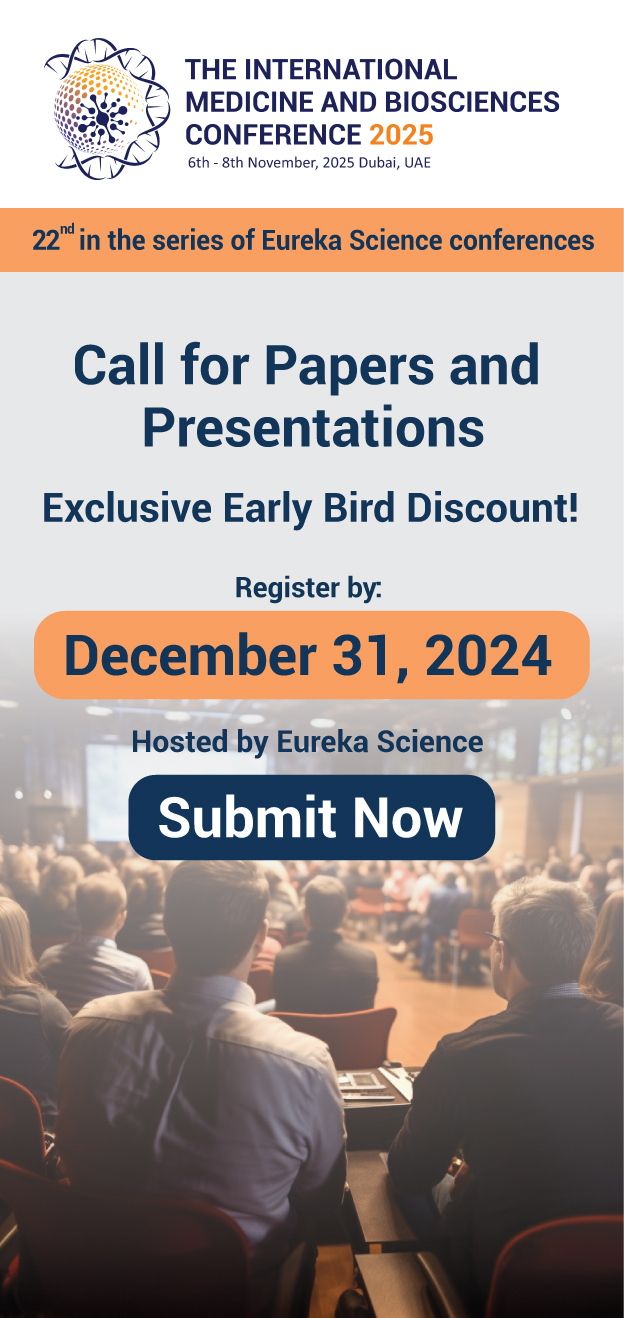
Thank you for visiting nature.com. You are using a browser version with limited support for CSS. To obtain the best experience, we recommend you use a more up to date browser (or turn off compatibility mode in Internet Explorer). In the meantime, to ensure continued support, we are displaying the site without styles and JavaScript.
- View all journals
- Explore content
- About the journal
- Publish with us
- Sign up for alerts
Collection 12 March 2023
Top 100 in Psychology - 2022
This collection highlights our most downloaded* psychology papers published in 2022. Featuring authors from around the world, these papers showcase valuable research from an international community.
You can also view the top papers across various subject areas here .
*Data obtained from SN Insights, which is based on Digital Science's Dimensions.

Cats learn the names of their friend cats in their daily lives
- Saho Takagi
- Atsuko Saito
- Hika Kuroshima
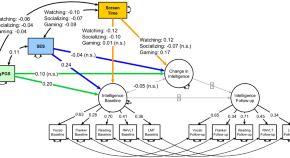
The impact of digital media on children’s intelligence while controlling for genetic differences in cognition and socioeconomic background
- Bruno Sauce
- Magnus Liebherr
- Torkel Klingberg
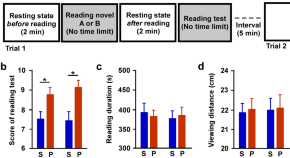
Reading on a smartphone affects sigh generation, brain activity, and comprehension
- Motoyasu Honma
- Yuri Masaoka
- Masahiko Izumizaki
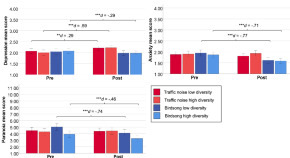
Birdsongs alleviate anxiety and paranoia in healthy participants
- J. Sundermann
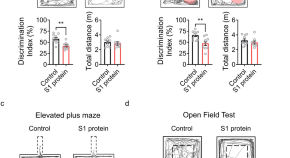
SARS-CoV-2 spike protein induces cognitive deficit and anxiety-like behavior in mouse via non-cell autonomous hippocampal neuronal death
- Junyoung Oh
- Woo-Hyun Cho
- Sung Joong Lee
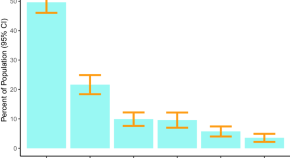
Prevalence, age of decision, and interpersonal warmth judgements of childfree adults
- Zachary P. Neal
- Jennifer Watling Neal
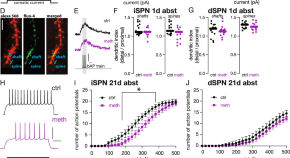
Acute and protracted abstinence from methamphetamine bidirectionally changes intrinsic excitability of indirect pathway spiny projection neurons in the dorsomedial striatum
- Sanghoon Choi
- Steven M. Graves
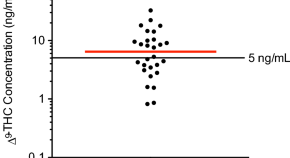
Indeterminacy of cannabis impairment and ∆ 9 -tetrahydrocannabinol (∆ 9 -THC) levels in blood and breath
- Gregory T. Wurz
- Michael W. DeGregorio
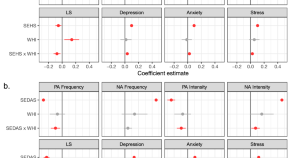
Perceiving societal pressure to be happy is linked to poor well-being, especially in happy nations
- Egon Dejonckheere
- Joshua J. Rhee
- Brock Bastian
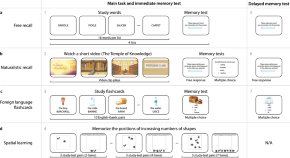
Fitness tracking reveals task-specific associations between memory, mental health, and physical activity
- Jeremy R. Manning
- Gina M. Notaro
- Paxton C. Fitzpatrick
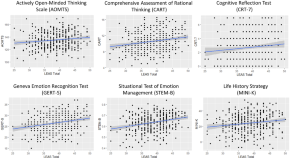
Higher emotional awareness is associated with greater domain-general reflective tendencies
- Michelle Persich
- William D. S. Killgore

Investigation of humans individual differences as predictors of their animal interaction styles, focused on the domestic cat
- Lauren R. Finka
- Lucia Ripari
- Marnie L. Brennan

Cichlids and stingrays can add and subtract ‘one’ in the number space from one to five
- V. Schluessel
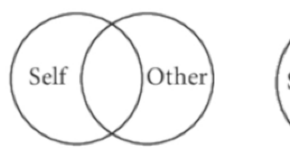
Group VR experiences can produce ego attenuation and connectedness comparable to psychedelics
- David R. Glowacki
- Rhoslyn Roebuck Williams
- Mike Chatziapostolou
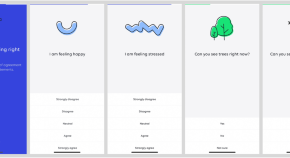
Smartphone-based ecological momentary assessment reveals mental health benefits of birdlife
- Ryan Hammoud
- Stefania Tognin
- Andrea Mechelli
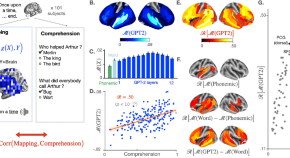
Deep language algorithms predict semantic comprehension from brain activity
- Charlotte Caucheteux
- Alexandre Gramfort
- Jean-Rémi King
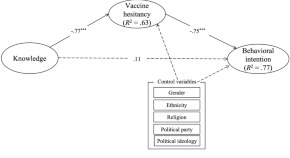
Misinformation of COVID-19 vaccines and vaccine hesitancy
- Sun Kyong Lee
- Juhyung Sun
- Shane Connelly
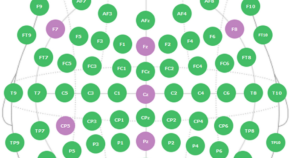
Children with autism spectrum disorder show atypical electroencephalographic response to processing contextual incongruencies
- Amparo V. Márquez-García
- Vasily A. Vakorin
- Sam M. Doesburg
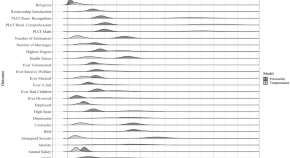
Childhood temperament and adulthood personality differentially predict life outcomes
- Amanda J. Wright
- Joshua J. Jackson
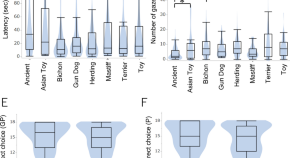
Identification of genes associated with human-canine communication in canine evolution
- Akiko Tonoike
- Ken-ichi Otaki
- Miho Nagasawa
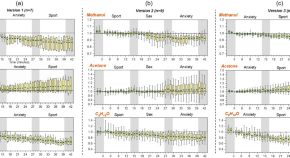
Breath chemical markers of sexual arousal in humans
- G. Pugliese
- J. Williams
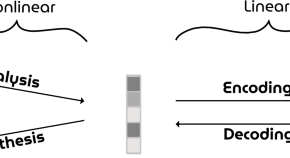
Hyperrealistic neural decoding for reconstructing faces from fMRI activations via the GAN latent space
- Thirza Dado
- Yağmur Güçlütürk
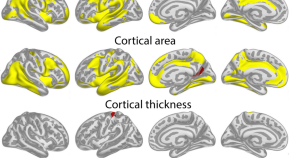
Brain aging differs with cognitive ability regardless of education
- Kristine B. Walhovd
- Lars Nyberg
- Anders M. Fjell
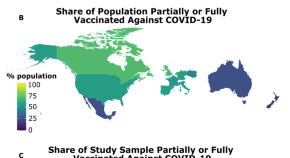
Short-sighted decision-making by those not vaccinated against COVID-19
- Julia G. Halilova
- Samuel Fynes-Clinton
- R. Shayna Rosenbaum
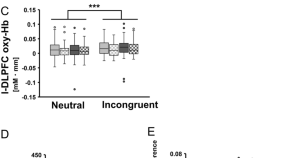
Groove rhythm stimulates prefrontal cortex function in groove enjoyers
- Takemune Fukuie
- Kazuya Suwabe
- Hideaki Soya
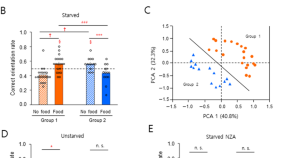
Human magnetic sense is mediated by a light and magnetic field resonance-dependent mechanism
- Kwon-Seok Chae
- Soo-Chan Kim
- Yongkuk Kim
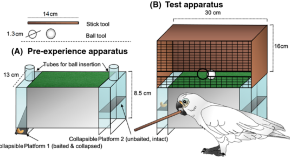
Innovative composite tool use by Goffin’s cockatoos ( Cacatua goffiniana )
- Antonio J. Osuna-Mascaró
- Roger Mundry
- Alice M. I. Auersperg
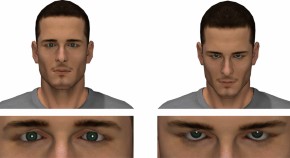
Is a downwards head tilt a cross-cultural signal of dominance? Evidence for a universal visual illusion
- Zachary Witkower
- Alexander K. Hill
- Jessica L. Tracy
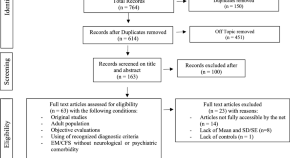
Systematic review and meta-analysis of cognitive impairment in myalgic encephalomyelitis/chronic fatigue syndrome (ME/CFS)
- Mehdi Aoun Sebaiti
- Mathieu Hainselin
- François Jérôme Authier
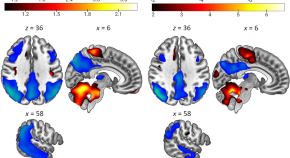
Identification and validation of Alzheimer’s disease-related metabolic brain pattern in biomarker confirmed Alzheimer’s dementia patients
- Matej Perovnik
- Petra Tomše
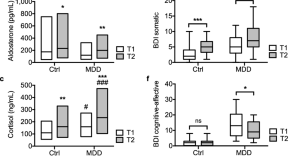
Impact of fasting on stress systems and depressive symptoms in patients with major depressive disorder: a cross-sectional study
- Britta Stapel
- Daniela Fraccarollo
- Kai G. Kahl
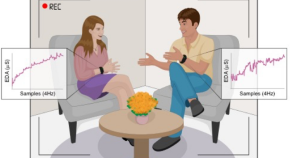
Bio-behavioral synchrony is a potential mechanism for mate selection in humans
- Nathalie klein Selle
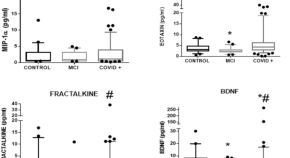
The cognitive and psychiatric subacute impairment in severe Covid-19
- Pedro J. Serrano-Castro
- Francisco J. Garzón-Maldonado
- Fernando Rodríguez de Fonseca
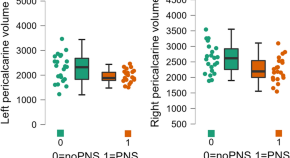

CNS imaging characteristics in fibromyalgia patients with and without peripheral nerve involvement
- Hans-Christoph Aster
- Dimitar Evdokimov
- Claudia Sommer
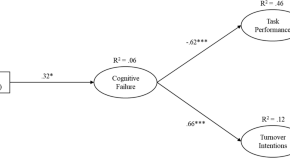
The effects of contracting Covid-19 on cognitive failures at work: implications for task performance and turnover intentions
- James W. Beck
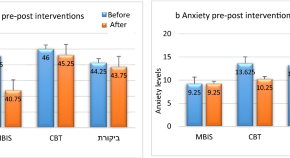
The effects of mindfulness meditation versus CBT for anxiety on emotional distress and attitudes toward seeking mental health treatment: a semi-randomized trial
- Daniela Aisenberg-Shafran
- Liav Shturm
Trait emotional intelligence in American pilots
- Zachary Dugger
- K. V. Petrides
- Bernadette McCrory

Mindfulness meditation increases default mode, salience, and central executive network connectivity
- Benno Bremer
- Kathrin Koch
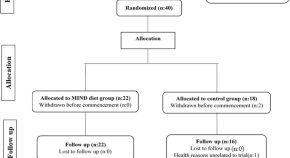
Effect of MIND diet intervention on cognitive performance and brain structure in healthy obese women: a randomized controlled trial
- Golnaz Arjmand
- Mojtaba Abbas-Zadeh
- Mohammad Hassan Eftekhari
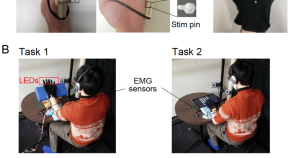
Bodily ownership of an independent supernumerary limb: an exploratory study
- Kohei Umezawa
- Yuta Suzuki
- Yoichi Miyawaki
Anabolic–androgenic steroid use is associated with psychopathy, risk-taking, anger, and physical problems
- Bryan S. Nelson
- Tom Hildebrandt
- Pascal Wallisch
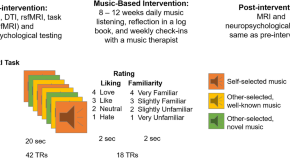
Longitudinal changes in auditory and reward systems following receptive music-based intervention in older adults
- Milena Aiello Quinci
- Alexander Belden
- Psyche Loui
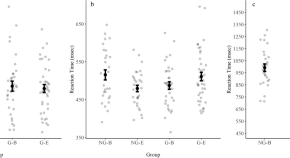
Reaction time and working memory in gamers and non-gamers
- Ronnie Lidor
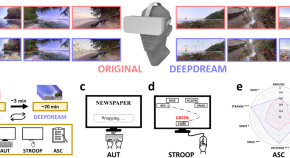
Simulated visual hallucinations in virtual reality enhance cognitive flexibility
- Clara Rastelli
- Antonino Greco
- Nicola De Pisapia
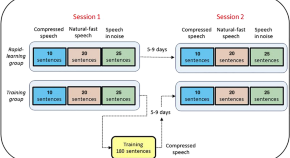
Rapid but specific perceptual learning partially explains individual differences in the recognition of challenging speech
- Karen Banai
- Hanin Karawani
- Yizhar Lavner
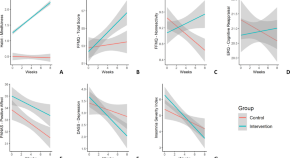
Mindfulness-based online intervention increases well-being and decreases stress after Covid-19 lockdown
- Francesco Bossi
- Francesca Zaninotto
- Emiliano Ricciardi
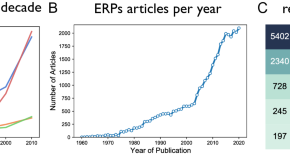
Automated meta-analysis of the event-related potential (ERP) literature
- Thomas Donoghue
- Bradley Voytek
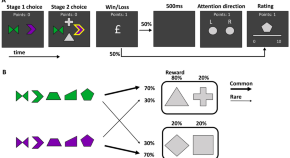
Model-based learning retrospectively updates model-free values
- Maaike M. H. Van Swieten
- Sanjay G. Manohar
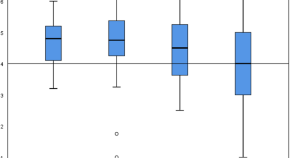
Interaction with the future self in virtual reality reduces self-defeating behavior in a sample of convicted offenders
- Jean-Louis van Gelder
- Liza J. M. Cornet
- Job van der Schalk
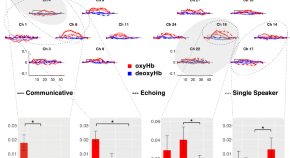
The newborn brain is sensitive to the communicative function of language
- Bálint Forgács
- Tibor Tauzin
- Judit Gervain
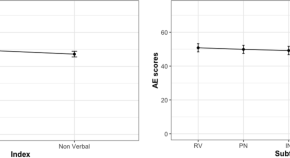
Cognitive profiles in children and adolescents with Down syndrome
- Sara Onnivello
- Francesca Pulina
- Silvia Lanfranchi
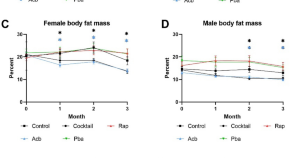
Short term treatment with a cocktail of rapamycin, acarbose and phenylbutyrate delays aging phenotypes in mice
- Warren Ladiges
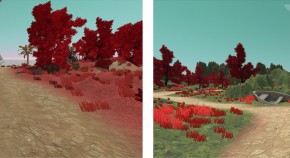
Effects of exploring a novel environment on memory across the lifespan
- Judith Schomaker
- Valentin Baumann
- Marit F. L. Ruitenberg
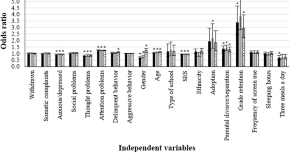
The impact of psychopathology on academic performance in school-age children and adolescents
- Mireia Pagerols
- Raquel Prat
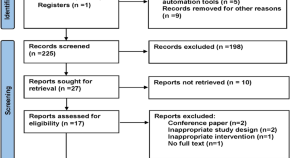
Effect of berry-based supplements and foods on cognitive function: a systematic review
- Negar Bonyadi
- Neda Dolatkhah
- Maryam Hashemian
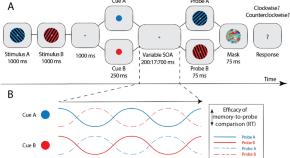
Attention rhythmically samples multi-feature objects in working memory
- Samson Chota
- Stefan Van der Stigchel

Functional brain connectomes reflect acute and chronic cannabis use
- J. G. Ramaekers
- N. L. Mason
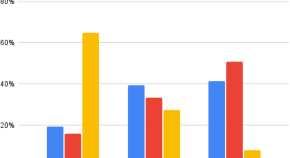
Simple questionnaires outperform behavioral tasks to measure socio-emotional skills in students
- Mélusine Boon-Falleur
- Adrien Bouguen
- Coralie Chevallier
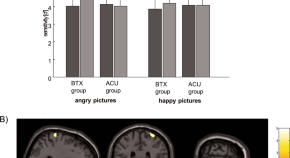
Neuronal effects of glabellar botulinum toxin injections using a valenced inhibition task in borderline personality disorder
- Tillmann H. C. Kruger
- Jara Schulze
- M. Axel Wollmer
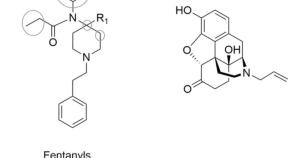
Naloxone’s dose-dependent displacement of [ 11 C]carfentanil and duration of receptor occupancy in the rat brain
- Kelly A. O’Conor
- Nora D. Volkow
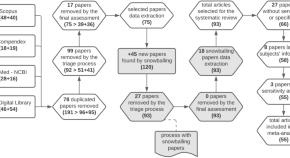
rs-fMRI and machine learning for ASD diagnosis: a systematic review and meta-analysis
- Caio Pinheiro Santana
- Emerson Assis de Carvalho
- Lucelmo Lacerda de Brito
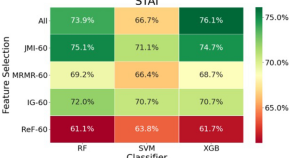
Machine learning and expression analyses reveal circadian clock features predictive of anxiety
- Rebeccah Overton
- Krista Ingram
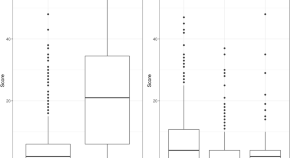
Impact of the COVID-19 pandemic on oral health and psychosocial factors
- Antonio Ciardo
- Marlinde M. Simon
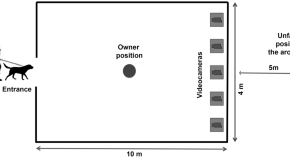
Facial asymmetry in dogs with fear and aggressive behaviors towards humans
- Marcello Siniscalchi
- Serenella d’Ingeo
- Angelo Quaranta
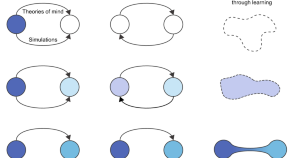
Superposition mechanism as a neural basis for understanding others
- Wataru Noguchi
- Hiroyuki Iizuka
- Shigeru Taguchi
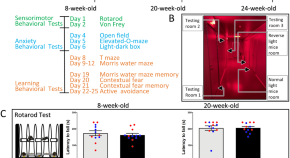
Influence of diurnal phase on behavioral tests of sensorimotor performance, anxiety, learning and memory in mice
- Chi-Hui Tsao
- Jonathan Flint
- Guo-Jen Huang
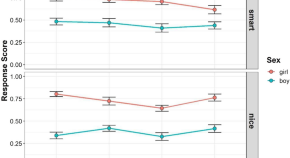
Gender stereotypes about intellectual ability in Japanese children
- Mako Okanda
- Xianwei Meng
- Yusuke Moriguchi
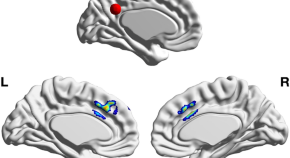
Meta-analytic evidence that mindfulness training alters resting state default mode network connectivity
- Hadley Rahrig
- David R. Vago
- Kirk Warren Brown
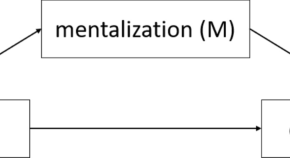
Mentalization and dissociation after adverse childhood experiences
- J. Wagner-Skacel
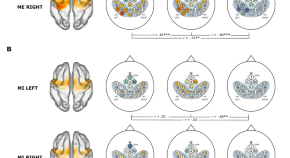
fMRI-based validation of continuous-wave fNIRS of supplementary motor area activation during motor execution and motor imagery
- Franziska Klein
- Stefan Debener
- Cornelia Kranczioch
Predictors of adherence to public health behaviors for fighting COVID-19 derived from longitudinal data
- Birga M. Schumpe
- Caspar J. Van Lissa
- N. Pontus Leander
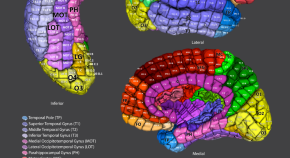
High-resolution cortical parcellation based on conserved brain landmarks for localization of multimodal data to the nearest centimeter
- Hari McGrath
- Hitten P. Zaveri
- Dennis D. Spencer
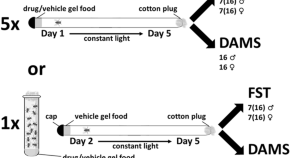
Validation of the forced swim test in Drosophila , and its use to demonstrate psilocybin has long-lasting antidepressant-like effects in flies
- C. D. Nichols
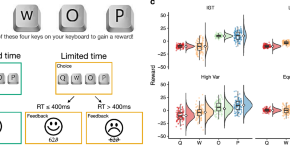
Time pressure changes how people explore and respond to uncertainty
- Charley M. Wu
- Eric Schulz
- Maarten Speekenbrink
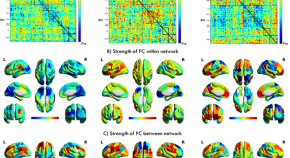
Functional connectivity of brain networks with three monochromatic wavelengths: a pilot study using resting-state functional magnetic resonance imaging
- Marc Argilés
- Bernat Sunyer-Grau
- Cleofé Peña-Gómez
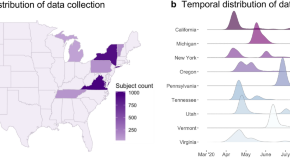
Behavioral coping phenotypes and associated psychosocial outcomes of pregnant and postpartum women during the COVID-19 pandemic
- Denise M. Werchan
- Cassandra L. Hendrix
- Natalie H. Brito
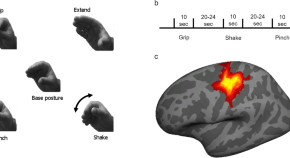
Spontaneous activity patterns in human motor cortex replay evoked activity patterns for hand movements
- Tomer Livne
- Maurizio Corbetta
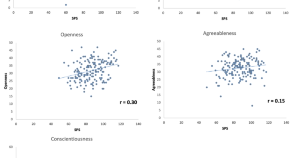
Sensory processing sensitivity and somatosensory brain activation when feeling touch
- Michael Schaefer
- Anja Kühnel
- Matti Gärtner
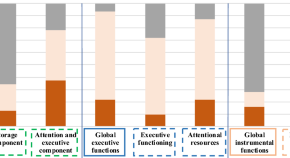
The interplay between cognition, depression, anxiety, and sleep in primary Sjogren’s syndrome patients
- Radjiv Goulabchand
- Elodie Castille
- Philippe Guilpain
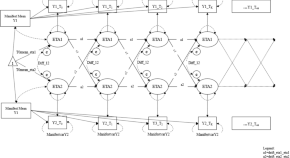
Dynamics of adolescents’ smartphone use and well-being are positive but ephemeral
- Laura Marciano
- Charles C. Driver
- Anne-Linda Camerini
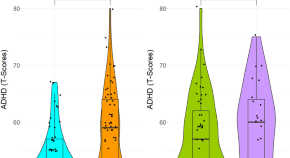
ADHD symptoms and use of anabolic androgenic steroids among male weightlifters
- Emilie Kildal
- Bjørnar Hassel
- Astrid Bjørnebekk
Facial mask personalization encourages facial mask wearing in times of COVID-19
- Johanna Palcu
- Martin Schreier
- Chris Janiszewski
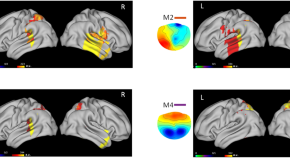
Exploring brain activity for positive and negative emotions by means of EEG microstates
- Giulia Prete
- Pierpaolo Croce
- Paolo Capotosto
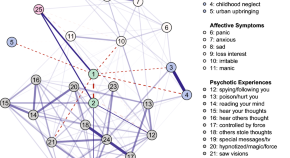
A network approach to relationships between cannabis use characteristics and psychopathology in the general population
- Linda T. Betz
- Nora Penzel
- Joseph Kambeitz
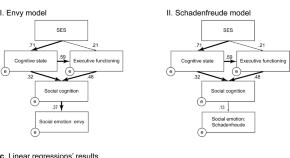
Socioeconomic status impacts cognitive and socioemotional processes in healthy ageing
- Joaquín Migeot
- Mariela Calivar
- Sol Fittipaldi
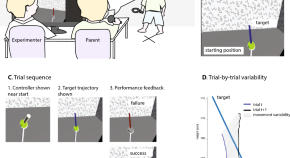
Parental praise and children’s exploration: a virtual reality experiment
- Eddie Brummelman
- Stathis Grapsas
- Katinka van der Kooij
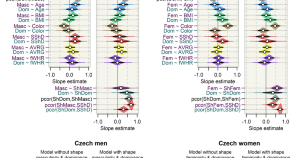
Africans and Europeans differ in their facial perception of dominance and sex-typicality: a multidimensional Bayesian approach
- Vojtěch Fiala
- Petr Tureček
- Karel Kleisner
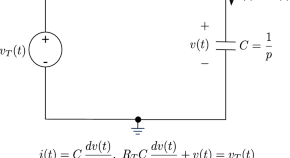
Brain information processing capacity modeling
- Tongtong Li
- Karl Friston
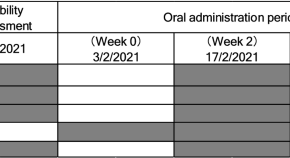
Safety evaluation of β-nicotinamide mononucleotide oral administration in healthy adult men and women
- Yuichiro Fukamizu
- Yoshiaki Uchida
- Takanobu Sakurai
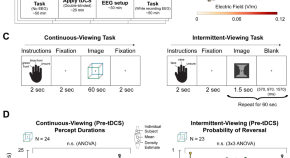
Neural oscillations promoting perceptual stability and perceptual memory during bistable perception
- Michael Zhu
- Richard Hardstone
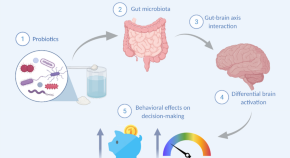
The effects of probiotics on risk and time preferences
- Aline M. Dantas
- Alexander T. Sack
- Teresa Schuhmann
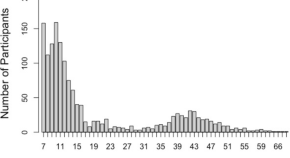
Media-multitasking and cognitive control across the lifespan
- Natasha Matthews
- J. B. Mattingley
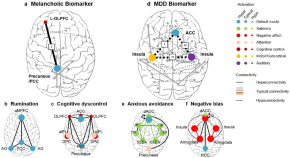
Depressive symptoms reduce when dorsolateral prefrontal cortex-precuneus connectivity normalizes after functional connectivity neurofeedback
- Jessica Elizabeth Taylor
- Takashi Yamada
- Tomokazu Motegi
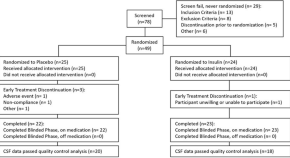
Intranasal insulin modulates cerebrospinal fluid markers of neuroinflammation in mild cognitive impairment and Alzheimer’s disease: a randomized trial
- Derek Kellar
- Thomas Register
- Suzanne Craft
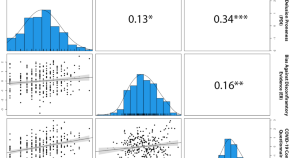
COVID-19 conspiracy ideation is associated with the delusion proneness trait and resistance to update of beliefs
- O. Horntvedt
- P. Petrovic
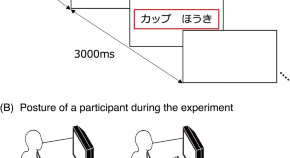
Hand constraint reduces brain activity and affects the speed of verbal responses on semantic tasks
- Kunihito Tobita
- Shogo Makioka
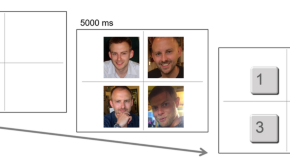
Impaired grouping of ambient facial images in autism
- Bayparvah Kaur Gehdu
- Katie L. H. Gray
- Richard Cook
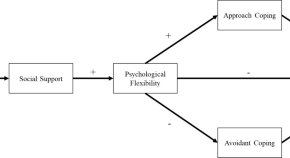
Social support, psychological flexibility and coping mediate the association between COVID-19 related stress exposure and psychological distress
- Richard Tindle
- Ahmed A. Moustafa
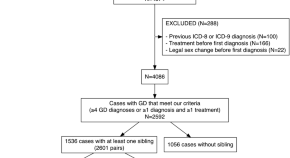
Gender dysphoria in twins: a register-based population study
- Georgios Karamanis
- Maria Karalexi
- Fotios C. Papadopoulos

Learning from communication versus observation in great apes
- Hanna Marno
- Christoph J. Völter
Quick links
- Explore articles by subject
- Guide to authors
- Editorial policies
An official website of the United States government
Official websites use .gov A .gov website belongs to an official government organization in the United States.
Secure .gov websites use HTTPS A lock ( Lock Locked padlock icon ) or https:// means you've safely connected to the .gov website. Share sensitive information only on official, secure websites.
- Publications
- Account settings
- Advanced Search
- Journal List

Psychology students' attitudes towards research: the role of critical thinking, epistemic orientation, and satisfaction with research courses
Miguel landa-blanco, antonio cortés-ramos.
- Author information
- Article notes
- Copyright and License information
Corresponding author. [email protected]
Received 2021 Feb 23; Revised 2021 Jun 10; Accepted 2021 Nov 26; Collection date 2021 Dec.
This is an open access article under the CC BY license (http://creativecommons.org/licenses/by/4.0/).
The current study aimed to determine how attitudes towards research are related to epistemic orientation, critical thinking, and satisfaction with research courses in psychology university students. Control variables included respondents' gender, current academic degree (undergraduate or postgraduate), number of research methods courses completed, number of research projects completed, and academic score. A quantitative, cross-sectional design was used, with a non-probabilistic sample size of 137 students. Correlational findings suggest that students with high scores in critical thinking domains and empiric and rational dispositions, tend to achieve higher academic grades. Rationality and reflexive skepticism were related to the number of research projects completed by the student. While an intuitive disposition is inversely related to academic scores and the number of research courses completed. Results from a hierarchical linear regression model suggest that attitudes towards research are significantly and positively affected by students' satisfaction with research courses, empiric epistemic orientation, and critical openness. On the other hand, an intuitive epistemic orientation has significant detrimental effects on attitudes towards research. Rational epistemic orientation and skeptic reflexiveness yielded non-significant coefficients. Overall, the model containing all independent variables accounted for 47.4% of the variance in attitudinal scores; this constitutes a large effect size. Results are discussed in light of previous research and their implications for the teaching of psychology in higher education.
Keywords: Scientific attitudes, Critical thinking, Epistemology, Student research
Scientific attitudes, Critical thinking, Epistemology, Student research.
1. Introduction
Attitudes are defined as a cognitive preference and behavioral predisposition towards an object, thus resulting in a favorable or unfavorable evaluation regarding a specific stimulus ( Eagly and Chaiken, 1993 ). Attitudes play an important role in predicting behavior ( Glasman and Albarracín, 2006 ), and consequently are a recurrent topic in educational and psychological studies. The present article will focus specifically on psychology students' attitudes towards research.
Research skills play an important role in higher education ( Lambie et al., 2014 ) and the psychological sciences ( Veilleux and Chapman, 2017 ). In higher education, specific competencies within psychology include the epistemic comprehension of science, critical scientific thinking, as well as the capability to design, execute and understand research ( American Psychological Association, 2011 ). However, on many occasions, psychology students dislike research methods courses ( Ciarocco et al., 2012 ). This might be due to the fact that students perceived disconnection between research courses content and its applicability to their professional field. A semantic analysis found that university students tend to consider psychology as a science, but less than natural sciences. Moreover, the term "psychology" and "science" were semantically linked by concepts related to research ( Richardson and Lacroix, 2021 ). Additionally, undergraduate psychology students tend to be more interested in practitioner activities than in scientific/research activities ( Holmes, 2014 ).
Students report several factors that dissuade them from doing research; these include considering that research activities are time-consuming, difficulties associated with the lack of mentorship and funding ( AlGhamdi et al., 2014 ; Siemens et al., 2010 ). Instructors of research methods classes often report that students have negative attitudes and disinterest in such courses ( Gurung and Stoa, 2020 ). In part, attitudes towards research can be explained by variables such as research anxiety, the perceived importance and usefulness students attribute to research, and believing that research has an unbiased nature ( Gredig and Bartelsen-Raemy, 2018 ). In this last regard, it is important to consider students' epistemic orientation.
Epistemic orientation refers to the individuals' preferences on how to gain and use knowledge ( Silva Palma et al., 2018 ). One taxonomy of epistemic orientations identifies three main preferences ( Royce, 1975 ; Silva Palma et al., 2018 ; Wilkinson and Migotsky, 1994 ): intuitive, rational, and empirical. The intuitive orientation assumes that knowledge is subjective and might be attained through metaphors and symbolisms. On the other hand, a rational orientation uses logic to evaluate arguments as true or false. An empiric orientation assumes that knowledge can only be attained through structured observations and experimentation. Science is greatly based on a combination of rational and empiric orientations.
Critical thinking is the process in which a person elaborates conclusions based on evidence ( Wallmann and Hoover, 2012 ), focusing on argumentation and reasoning. This requires synthetic, introspective skills, skepticism, openness to new arguments or evidence, evaluating different options and their ramifications, dialogical thinking, self-questioning, self-monitoring, self-criticism ( Garrett and Cutting, 2017 ; Reznitskaya and Sternberg, 2012 ; Sosu, 2013 ; Sternberg, 1987 ). Critical thinking is an essential element of scientific thinking ( Shargel and Twiss, 2019 ), and an essential skill in the academic formation of psychologists. Consequently, students are, ideally, trained to admit the role of randomness, evaluate the methodological quality of arguments, understand the differences between correlation and causality, acknowledge the complex and multicausal nature of events, and understand the importance of falsification ( Lawson, 1999 ; Lawson et al., 2015 ). Therefore it is evident that there is a link between critical thinking and research within the psychological sciences ( Meltzoff and Cooper, 2018 ).
Recent studies have found that research and statistics courses may enhance students' knowledge of the topic without increasing their interest ( Sizemore and Lewandowski, 2009 ). Specifically, teachers play an important role in developing students' research competencies, including its attitudinal component ( Udompong et al., 2014 ). Students' satisfaction with university courses is related to teaching quality and expertise ( Green et al., 2015 ). As such, it is vital to determine the role satisfaction with research courses plays in students' attitudes towards research.
The National Autonomous University of Honduras (UNAH) offers psychology programs in undergraduate (BA) and postgraduate (master's) degrees. The undergraduate program consists of 45 courses, of which 4 are mandatory-sequential Research Methods classes ( UNAH, 2019 ). By the end of the degree, students are expected to be competent in elaborating research proposals, literature reviews, the basic design of quantitative and qualitative instruments, applying descriptive and basic inferential statistics, and writing technical reports. On the other hand, the postgraduate degree has 18 compulsory courses, of which 4 are mandatory research classes ( UNAH, 2021 ). Their content is thesis-oriented, as it is a graduation requirement for the postgraduate programs of the UNAH.
Considering this, the purpose of our exploratory study was to test the following hypothesis: attitudes towards research are related to epistemic orientation, critical thinking, and satisfaction with research courses in psychology university students of Honduras. This while controlling for respondents' gender, current academic degree (undergraduate or postgraduate), number of research methods courses completed, number of research projects completed, and academic score.
2.1. Participants
The current study included students in the final year of their bachelor's degree, and students enrolled in a master's degree psychology program at a public university in Honduras. The sample was collected online through a non-probabilistic approach using volunteer and snowball sampling. Due to the COVID-19 pandemic, all university courses are held exclusively online. Considering this, invitations to participate in the study were sent via email to all 603 undergraduate students coursing final year classes and internships. Similarly, emails invitations were sent to all 62 masters' degree students. However, due to low response rates, students who completed the survey were also asked to send the email invitation to fellow students.
This resulted in a final sample size of 137 participants, of which 75.91% ( n = 104) were undergraduate students, accounting for 17.24% of the population of undergraduate students. On the other hand, 24.09% ( n = 33) were enrolled in a master's degree, representing 53.22% of the postgraduate population. Most respondents ( n = 113; 82.48%) were female, while male students only accounted for 17.52% of the total sample ( n = 24). The gender distribution in the sample is coherent with the population's demographic characteristics, in which 76.24% are female students, and 23.76% are male ( National Autonomous University of Honduras, 2021 ).
The mean academic score was 83.75% ( SD = 7.11); this represents the weighted average from all academic courses completed by the students. Students had completed an average of 5.08 research courses ( SD = 1.96) and participated in an average of 4.18 research projects ( SD = 2.86). The overall age of the respondents was 28.20 years ( SD = 7.61). Specifically, undergraduate students had a mean age of 26 years ( SD = 5.46), while master's degree students had a mean age of 35.12 years ( SD = 9.23).
2.2. Variables and measures
2.2.1. attitudes towards research.
Data was collected using the Attitudes Towards Research Scale-Revised (EACIN-R) ( Aldana de Becerra et al., 2020 ), a revised version of the original EACIN ( Aldana de Becerra et al., 2016 ). It consists of 28 items, with a five-point Likert-type response set, with scores varying from 1 (completely disagree) to 5 (completely agree), with higher scores indicating more favorable attitudes towards research. Some items included in the EACIN-R are: "All professionals should know how to do research", "I do not believe research should be taught at universities" and "I am interested in doing research activities". As measured by Cronbach's Alpha, the internal consistency for this sample was 0.89, 95% CI [0.86; 0.91].
2.2.2. Epistemic orientation
The Epistemic Orientation Short Scale (EOSS) consists of 11 items with a five-point Likert-type response set, with scores varying from 1 (completely disagree) to 5 (completely agree), with higher scores indicating a more prevalent epistemic orientation. The EOSS measures the following subscales: rationalism ( α = 0.71), intuitivism ( α = 0.77), and empiricism ( α = 0.72) ( Silva Palma et al., 2018 ). The current study determined the internal consistency coefficients for each dimension: rationalism, α = 0.83, 95% CI [0.78; 0.87]; intuitivism, α = 0.65, 95% CI [0.54; 0.73]; empiricism α = 0.64, 95% CI [0.52; 0.73]. Some items from the EOSS include: "My opinions are commonly based on feelings and intuitions" (intuitivism), "I tend to make decisions based on reasons I can clearly explain" (rationalism), and "I tend to make decisions based on my experiences and practical situations" (empiricism).
2.2.3. Critical thinking
The Critical Thinking Disposition Scale (CTDS) is an 11-item instrument with a five-point Likert-type response set, with scores varying from 1 (completely disagree) to 5 (completely agree), with higher scores indicating higher self-reported critical thinking disposition. The CTDS has a bi-dimensional structure consisting of two factors: critical openness and reflective skepticism. Previous research reported an overall Cronbach's alpha of 0.81 ( Sosu, 2013 ), similar to the one found in the current study, α = 0.86, 95% CI [0.82; 0.89]. Some items included in the CTDS are: "I sometimes find a good argument that challenges some of my firmly held beliefs" (Critical Openness) and "I usually check the credibility of the source of information before making judgments" (reflective skepticism).
2.2.4. Satisfaction with University Research Courses
The authors of the current study elaborated the Satisfaction with University Research Courses Scale (SURCS). Items were built by the authors and later sent to three Research Methods university professors who revised the wording and validity of every item. The experts rated each question on a 5-point scale according to their importance, pertinence, and wording; items with low scores were rephrased according to the experts' opinions. The final version of the SURCS consists of 12 Likert-type items with a five-point response set, with scores varying from 1 (completely disagree) to 5 (completely agree) . Higher scores indicate higher satisfaction with research university courses. The items reflects course content-related satisfaction, teacher satisfaction, perceived importance of the Research Methods courses, and personal satisfaction with such courses.
The instrument had an overall internal reliability of 0.91, 95% CI [0.89; 0.93], the average inter-item correlation was of 0.48, 95% CI [0.41; 0.54], Table 1 details the reliability for each item included in the SRUCS. Some of the items included in the SURCS are: "I enjoyed taking the Research Methods courses", "I believe my teachers of Research Methods courses had plenty experience as researchers", "I believe the content of the Research Methods courses is relevant".
Item reliability for the satisfaction with University Research Courses Scale.
Note. Item 5 was inversely recoded.
2.2.5. Demographic and educational questionnaire
Additional demographic and educational data were collected through a questionnaire that gathered information regarding respondents' gender (0 = male, 1 = female), age, current academic degree (0 = undergraduate, 1 = postgraduate), number of research methods courses completed, number of research projects completed, and self-reported academic grade. On this last point, students were asked to enter the academic grade as reported in their official university online certification. The academic grade is a score that ranges between 0 and 100.
2.3. Data analysis
Items were averaged to determine the total for each scale. An exploratory correlational analysis, using Pearson's r , was used to assess inter-variable dynamics. Comparisons between undergraduate and postgraduate students were made by using Student's t-test, a power analysis with its corresponding confidence intervals was also made. Later, a hierarchical linear regression model was used to explain the scores students achieved at the Attitudes Towards Research Scale-Revised (EACIN-R). The independent variables tested included: EOSS-rational, EOSS-intuitive, EOSS-empiric, CTDS-critical openness, CTDS-reflexive skepticism, and satisfaction with research courses. This while controlling for: gender, current academic degree, number of research methods courses completed, number of research projects completed, and academic grade. A post-hoc analysis was used to determine the achieved power of the regression model. An α = 0.05 was used as a significance threshold. Participants were required to answer all items; therefore, no missing data were included in the study. All statistical analyses were made using JASP ( JASP Team, 2020 ).
2.4. Ethical considerations
The study design and execution were approved by the Ethical Committee of the Universidad Internacional Iberoamericana (UNINI), under certificate N˚ CE-025. All potential participants were presented with an Informed Consent form that included the study's purpose, confidentiality agreement, voluntary participation clause, data management, etc. Agreeing to the Informed Consent was required to allow students to participate in the study.
Results indicate that students had an average score of 3.87 ( SD = 0.50) in the Attitudes Towards Research Scale-Revised. The mean of the Satisfaction with Research University Courses Scale was 4.04 ( SD = 0.71). The most prevalent epistemic orientation was the EOSS-Empiric disposition ( M = 4.09; SD = 0.65), followed by EOSS-Rational ( M = 3.87; SD = 0.73), and EOSS-Intuitive as less prevalent disposition ( M = 3.40; SD = 0.75). Regarding critical thinking, CTDS-Reflexive-Skepticism scores ( M = 4.31; SD = 0.69) were higher than CTDS-Critical Openness ( M = 4.19; SD = 0.54).
Satisfaction with research courses and attitudes towards research were significantly higher for postgraduate students than for undergraduate respondents. Such differences are not only statistically significant ( p < 0.01), but also achieve medium effect sizes ( d = -0.64). Empiric and rational epistemic orientations are similarly scored by undergraduate and postgraduate students ( p > .05); however, intuitive orientation is significantly lower for postgraduate respondents ( p = 0.04). Critical thinking disposition subscales do not vary significantly between undergraduate and postgraduate students ( p > .05). Table 2 provides a detailed description of mean differences, significance, and effect size.
Score comparisons between undergraduate and postgraduate students.
Note. df = 135.
A relational analysis determined that academic score is significantly and positively correlated ( p < 0.05) with CTDS-Critical Openness, CTDS Reflexive Skepticism, EOSS-Empiric, EOSS-Rational, satisfaction with research courses, and attitudes towards research. On the other hand, EOSS-Intuitive is inversely related to academic scores and the number of research courses completed. The number of research projects completed was significantly and positively associated with CTDS-Reflexive Skepticism, EOSS-Rational, satisfaction with research courses, and attitudes towards research. Additionally, both rational and empiric orientations correlate positively with critical thinking domains. Attitudes towards research also have positive relationships with EOSS-Rational and EOSS Empiric, but are inversely related with EOSS-Intuitive, see Table 3 .
Correlational analysis between educational variables, critical thinking, and epistemic orientation.
Note. Correlation coefficients were calculated through Pearson's r . Significant p -values (<0.05) are presented in bold letters.
Furthermore, a hierarchical regression model was used to determine how attitudes towards research are explained by critical thinking, epistemic orientation, and satisfaction with research courses. The base model, containing control variables, had an r 2 of .197, F (5, 131) = 6.411, p < .001. The final model, containing all independent variables, had an r 2 of .474, F (11, 125) = 10.229, p < 0.001, this constitutes a large effect size ( Cohen, 1992 ), f 2 = .901, with a high power >0.99. The changes between the base and final model are statistically significant, r 2 Δ = .277, FΔ = 3.818, p < 0.001.
While controlling for the academic degree, number of research courses completed, number of completed research projects, academic grade and gender, the following independent variables had a significant effect on attitudes towards research: satisfaction with research courses ( β = 0.256, p = 0.001), empiric epistemic orientation ( β = 0.254, p = 0.003), intuitive epistemic orientation ( β = -0.149, p = 0.039) and critical openness ( β = 0.197, p = 0.049). Rational epistemic orientation ( β = 088, p = 0.32) and skeptic reflexiveness ( β = -0.043, p = 0.665) yielded non-significant coefficients ( p > 0.05), see Table 4 .
Regression model explaining students' attitudes towards research.
Note. Significant p -values (<0.05) are presented in bold letters. All Variance Inflation Factors (VIF) scores range from 1.09 to 2.35, indicating no collinearity issues.
4. Discussion
The current research provides evidence that suggests that attitudes towards research are positively and significantly affected by students' satisfaction with research courses, empiric epistemic orientation, and critical openness. On the other hand, an intuitive epistemic orientation has significant detrimental effects on attitudes towards research. Students with high scores in critical thinking domains and empiric and rational dispositions, tend to achieve higher academic grades. Rationality and reflexive skepticism were related to the number of research projects completed by the student. While an intuitive disposition is inversely related to academic scores and the number of research courses completed.
Considering this, our study indicates that students' attitudes towards research could improve by reinforcing the quality of research methods courses, promoting empirical epistemic values and critical openness. On the first topic, knowledge of research methods is a premise of scientific thinking; therefore, effective research training should promote scientific thinking skills while considering students' epistemic beliefs ( Murtonen and Salmento, 2019 ). Teaching students how to evaluate the credibility and validity of information sources is a key component to promote critical thinking ( Carlson, 1995 ). Teachers should also promote inquiry-based activities in their classes; these include: students creating and answering their own questions, reciprocal peer questioning and, including questions that require holistic-integrative responses ( King, 1995 ). Such methods should enhance critical thinking and rational epistemic orientation.
Defining questions and hypotheses, critical thinking, and epistemic understanding are vital to overcoming intuitive-based decisions and non-scientific beliefs, leading to an evidence-based approach to problem-solving ( Murtonen and Salmento, 2019 ). An empiric epistemic orientation has significant effects on attitude towards research. Empiricism is highly driven by observational and experimental reports ( American Psychological Association, 2020 ), and is an essential pillar of scientific research.
Our study provides evidence that an intuitive epistemic orientation has detrimental effects on students' attitudes towards scientific research. This finding is coherent with previous research made in a sample of psychotherapists, in which intuitive thinking was related to negative attitudes towards research, as well as more resistance to adopting evidence-based treatments in their professional practice. Psychotherapists with higher intuitive thinking were more willing to endorse alternative therapies and misconceptions about health ( Gaudiano et al., 2011 ).
Likewise, critical openness was found to be a significant predictor of students' attitudes towards research. Considering that critical openness refers to the willingness to explore new or alternative arguments ( Sosu, 2013 ), it is logical that such openness was a significant predictor of students' attitudes towards research. In this sense, prior research has determined that scientists, in contrast to non-scientists, report significantly higher scores on openness ( Sato, 2016 ). Contemplating and evaluating new or alternative arguments is a key component to promote scientific development, and as such, these skills should be promoted in higher education settings. Teachers play an important part in enhancing students' critical thinking skills, playing a facilitator role, emphasizing the analytical process related to decision making, promoting discussion among peers, autonomous learning, and dialogical thinking ( Reznitskaya and Sternberg, 2012 ; Sternberg, 1987 ).
Our findings indicate that the number of research courses completed by the students does not influence their attitudes towards research. This finding is coherent with Sizemore and Lewandowsk (2009) , who concluded that completing research and statistics courses may enhance students' knowledge on the topic, without necessarily increasing their interest. Therefore, to better understand students' attitudes towards research, the focus should not reside on the number of research courses completed by the students, but rather on their satisfaction with such classes.
Satisfaction with research courses plays an important role in developing students' attitudes towards research. Thus, such courses should be taught by teachers highly trained in research and teaching skills, with updated, relevant, and applicable content that captures students' interest in research methods. This suggestion is in line with previous research, which identifies that teaching quality and expertise promote students' satisfaction with research courses ( Green et al., 2015 ). In this sense, teacher engagement has significant effects on student engagement ( Cardwell, 2011 ).
Overall, teachers should explicitly state and evidence the relationship between scientific thinking and research skills, as well as their application beyond academic activities. Students should also have clarity about the research process and what is expected of them as researchers. In this sense, quality feedback, adequate mentorship, peer support, and collaborative learning may enhance favorable attitudes towards the research process ( Balloo, 2019 ).
Future studies should consider using qualitative and mixed methods designs to understand students' epistemic beliefs better, further exploring the meaning of psychology as a science. On the other hand, additional studies could specifically focus on postgraduate students and their attitudes and experiences on research activities, such as thesis writing.
The present study is not without limitations. The non-probabilistic selection process and the limited sample size may restrict the representativeness of the results. The nature of the epistemic, scientific, and attitudinal variables also possess an issue because it requires the respondents to have acquired a certain level of epistemic maturity ( Murtonen and Salmento, 2019 ). Such awareness and metacognitive capabilities might not be adequately developed in all students. Additionally, the relatively low reliability of the EOSS subscales of Intuitivism ( α = 0.65) and Empiricism ( α = 0.64) is a limitation to consider when interpreting our research results. Future studies should also investigate further the psychometric properties of the SURCS. Finally, high scores in the EACIN-R indicate favorable attitudes towards research, and low scores indicate unfavorable attitudes. However, the EACIN-R lacks a system to categorize attitudinal scores through cut-off values ( Aldana de Becerra et al., 2020 ). In this sense, more research is yet needed to further validate the scale in university populations.
Declarations
Author contribution statement.
Miguel Landa-Blanco and Antonio Cortés-Ramos: Conceived and designed the experiments; Performed the experiments; Analyzed and interpreted the data; Contributed reagents, materials, analysis tools or data; Wrote the paper.
Funding statement
This research did not receive any specific grant from funding agencies in the public, commercial, or not-for-profit sectors.
Data availability statement
Data will be made available on request.
Declaration of interests statement
The authors declare no conflict of interest.
Additional information
No additional information is available for this paper.
- Aldana de Becerra G.M., Babativa Novoa D.A., Caraballo Martínez G.J., Rey Anacona C.A. Attitudes towards research scale: evaluation of its psychometric properties in a Colombian sample. CES Psicología. 2020;13(1):89–103. https://revistas.ces.edu.co/index.php/psicologia/article/view/4828/3121 [ Google Scholar ]
- Aldana de Becerra G.M., Caraballo Martínez G.J., Babativa Novoa D.A. Escala para medir actitudes hacia la investigación (EACIN): validación de contenido y confiabilidad. Aletheia. 2016;8(2) [ Google Scholar ]
- AlGhamdi K.M., Moussa N.A., AlEssa D.S., AlOthimeen N., Al-Saud A.S. Perceptions, attitudes and practices toward research among senior medical students. Saudi Pharmaceut. J. 2014;22(2):113–117. doi: 10.1016/j.jsps.2013.02.006. [ DOI ] [ PMC free article ] [ PubMed ] [ Google Scholar ]
- American Psychological Association . 2011. Revised Competency Benchmark for Professional Psychology. https://www.apa.org/ed/graduate/competency Competency Initiatives in Professional Psychology. [ Google Scholar ]
- American Psychological Association . 2020. Databases Methodology Field Values. https://www.apa.org/pubs/databases/training/method-values.pdf [ Google Scholar ]
- Balloo K. In: Redefining Scientific Thinking for Higher Education: Higher-Order Thinking, Evidence-Based Reasoning and Research Skills. Murtonen M., Balloo K., editors. Palgrave Macmillan; 2019. Students' difficulties during research methods training acting as potential barriers to their development of scientific thinking; pp. 107–137. [ Google Scholar ]
- Cardwell M.E. St. John Fisher College; 2011. Patterns Of Relationships between Teacher Engagement And Student Engagement. https://core.ac.uk/download/pdf/48615453.pdf [ Google Scholar ]
- Carlson E.R. Evaluating the credibility of sources: a missing link in the teaching of critical thinking. Teach. Psychol. 1995;22(1):39–41. [ Google Scholar ]
- Ciarocco N.J., Lewandowski G.W., Van Volkom M. The impact of a multifaceted approach to teaching research methods on students' attitudes. Teach. Psychol. 2012;40(1):20–25. [ Google Scholar ]
- Cohen J. A power primer. Psychol. Bull. 1992;112(1):155–159. doi: 10.1037//0033-2909.112.1.155. [ DOI ] [ PubMed ] [ Google Scholar ]
- Eagly A.H., Chaiken S. The Psychology of Attitudes. Harcourt Brace Jovanovich College Publishers; 1993. The psychology of attitudes. https://psycnet.apa.org/record/1992-98849-000 [ Google Scholar ]
- Garrett B.M., Cutting R.L. Magical beliefs and discriminating science from pseudoscience in undergraduate professional students. Heliyon. 2017;3(11) doi: 10.1016/j.heliyon.2017.e00433. [ DOI ] [ PMC free article ] [ PubMed ] [ Google Scholar ]
- Gaudiano B.A., Brown L.A., Miller I.W. Let your intuition be your guide? Individual differences in the evidence-based practice attitudes of psychotherapists. J. Eval. Clin. Pract. 2011;17(4):628–634. doi: 10.1111/j.1365-2753.2010.01508.x. [ DOI ] [ PubMed ] [ Google Scholar ]
- Glasman L.R., Albarracín D. Forming attitudes that predict future behavior: a meta-analysis of the attitude-behavior relation. Psychol. Bull. 2006;132(Issue 5):778–822. doi: 10.1037/0033-2909.132.5.778. American Psychological Association. [ DOI ] [ PMC free article ] [ PubMed ] [ Google Scholar ]
- Gredig D., Bartelsen-Raemy A. Exploring social work students' attitudes toward research courses: predictors of interest in research-related courses among first year students enrolled in a bachelor's programme in Switzerland. Soc. Work. Educ. 2018;37(2):190–208. [ Google Scholar ]
- Green H.J., Hood M., Neumann D.L. Predictors of student satisfaction with university psychology courses: a review. Psychol. Learn. Teach. 2015;14(2):131–146. [ Google Scholar ]
- Gurung R.A.R., Stoa R. A National survey of teaching and learning research methods: important concepts and faculty and student perspectives. Teach. Psychol. 2020;47(2):111–120. [ Google Scholar ]
- Holmes J.D. Undergraduate psychology's scientific identity dilemma: student and instructor interests and attitudes. Teach. Psychol. 2014;41(2):104–109. [ Google Scholar ]
- JASP Team . 2020. JASP Version 0.14. www.jasp-stats.org [computer software] [ Google Scholar ]
- King A. Designing the instructional process to enhance critical thinking across the curriculum: inquiring minds really do want to know: using questioning to teach critical thinking. Teach. Psychol. 1995;22(1):13–17. [ Google Scholar ]
- Lambie G.W., Hayes B.G., Griffith C., Limberg D., Mullen P.R. An exploratory investigation of the research self-efficacy, interest in research, and research knowledge of Ph.D. In education students. Innovat. High. Educ. 2014;39(2):139–153. [ Google Scholar ]
- Lawson T.J. Assessing psychological critical thinking as a learning outcome for psychology majors. Teach. Psychol. 1999;26(3):207–226. [ Google Scholar ]
- Lawson T.J., Jordan-Fleming M.K., Bodle J.H. Measuring psychological critical thinking: an update. Teach. Psychol. 2015;42(3):248–253. [ Google Scholar ]
- Meltzoff J., Cooper H. second ed. American Psychological Association; 2018. Critical thinking about research: psychology and related fields. (Critical Thinking about Research: Psychology and Related fields). [ Google Scholar ]
- Murtonen M., Salmento H. In: Redefining Scientific Thinking for Higher Education: Higher-Order Thinking, Evidence-Based Reasoning and Research Skills. Murtonen M., Balloo K., editors. Palgrave Macmillan; 2019. Broadening the theory of scientific thinking for higher education; pp. 3–29. [ Google Scholar ]
- National Autonomous University of Honduras . 2021. Enrollment I PAC. https://estadistica.unah.edu.hn/dmsdocument/10739-matricula-i-pac-2021-preliminar [ Google Scholar ]
- Reznitskaya A., Sternberg R.J. In: Positive Psychology in Practice. Linley P., Joseph S., editors. 2012. Teaching students to make wise judgments: the "teaching for wisdom" program; pp. 181–196. [ Google Scholar ]
- Richardson L., Lacroix G. What do students think when asked about psychology as a science? Teach. Psychol. 2021;48(1):80–89. [ Google Scholar ]
- Royce J. In: Perspectives in Information Science. NATO Advances Study Institutes Series (Series E: Applied Science) Debons A., Cameron W., editors. Springer; 1975. Epistemic styles, individuality, and world-view; pp. 259–295. [ Google Scholar ]
- Sato W. Scientists' personality, values, and well-being. SpringerPlus. 2016;5:613. doi: 10.1186/s40064-016-2225-2. [ DOI ] [ PMC free article ] [ PubMed ] [ Google Scholar ]
- Shargel R., Twiss L. In: Redefining Scientific Thinking for Higher Education: Higher-Order Thinking, EvidenceBased Reasoning and Research Skills. Murtonen M., Balloo K., editors. Palgrave Macmillan; 2019. Evidenced-based thinking for scientific thinking; pp. 79–103. [ Google Scholar ]
- Siemens D.R., Punnen S., Wong J., Kanji N. A survey on the attitudes towards research in medical school. BMC Med. Educ. 2010;10(1):4. doi: 10.1186/1472-6920-10-4. [ DOI ] [ PMC free article ] [ PubMed ] [ Google Scholar ]
- Silva Palma E.M., Guedes Gondim S.M., Nova Aguiar C.V. Epistemic orientation short scale: development and validity evidence in a sample of psychotherapists 1. Paideia. 2018;28(69) [ Google Scholar ]
- Sizemore O.J., Lewandowski G.W. Learning might not equal liking: research methods course changes knowledge but not attitudes. Teach. Psychol. 2009;36(2):90–95. [ Google Scholar ]
- Sosu E.M. The development and psychometric validation of a critical thinking disposition scale. Think. Skills Creativ. 2013;9:107–119. [ Google Scholar ]
- Sternberg R.J. Teaching critical thinking: eight easy ways to fail before you begin. Phi Delta Kappan. 1987;68(6):456–459. http://www.jstor.org/stable/20403395 [ Google Scholar ]
- Udompong L., Traiwichitkhun D., Wongwanich S. Causal model of research competency via scientific literacy of teacher and student. Proced. Soci. Behav. Sci. 2014;116:1581–1586. [ Google Scholar ]
- UNAH . 2019. Outline of the Undergraduate Degree in Psychology. https://www.unah.edu.hn/assets/Admisiones/plan-de-estudios/Psicologia-2019.pdf [ Google Scholar ]
- UNAH . 2021. Faculty of Social Sciences-Postgraduate Degrees. https://cienciassociales.unah.edu.hn/postgrados/ [ Google Scholar ]
- Veilleux J.C., Chapman K.M. Development of a research methods and statistics concept inventory. Teach. Psychol. 2017;44(3):203–211. [ Google Scholar ]
- Wallmann H.W., Hoover D.L. Research and critical thinking : an important link for exercise science students transitioning to physical therapy. Int. J. Exerc. Sci. 2012;5(2):93–96. https://pubmed.ncbi.nlm.nih.gov/27182378 [ PMC free article ] [ PubMed ] [ Google Scholar ]
- Wilkinson W.K., Migotsky C.P. A factor Analytic study of epistemological style inventories. J. Psychol. 1994;128(5):499–516. [ Google Scholar ]
Associated Data
This section collects any data citations, data availability statements, or supplementary materials included in this article.
Data Availability Statement
- View on publisher site
- PDF (264.5 KB)
- Collections
Similar articles
Cited by other articles, links to ncbi databases.
- Download .nbib .nbib
- Format: AMA APA MLA NLM
Add to Collections

IMAGES